Mental Trauma After a Car Accident in Ontario, Canada
Compensation for Mental Trauma After a Car Accident in Ontario, Canada
Involving in a car accident can be scary and traumatic, even if the physical injuries are not very serious. Experiencing a car accident can have far-reaching effects beyond physical injuries.
In Ontario, Canada, individuals involved in car accidents may also suffer mental trauma that can significantly impact their well-being. It’s essential to find out what options are available for treatment and compensation. Understanding the complexities of post-accident mental trauma is crucial for survivors and their support networks.
In this webpage, we will discuss what mental trauma is, the common symptoms experienced by victims, and what steps to take to seek help and compensation for the damages suffered.
- Effects of Mental Trauma After a Car Accident in Ontario?
- Signs of Mental Trauma After an Accident in Ontario?
- Steps to Avoid Mental Trauma During a Car Accident in Ontario?
- Treatment of Post Traumatic Stress Disorder After a Car Accident in Ontario?
- Compensation Steps for Post-traumatic Stress After a Car Accident in Ontario?

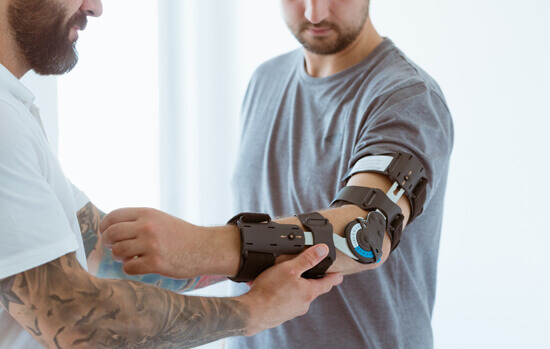
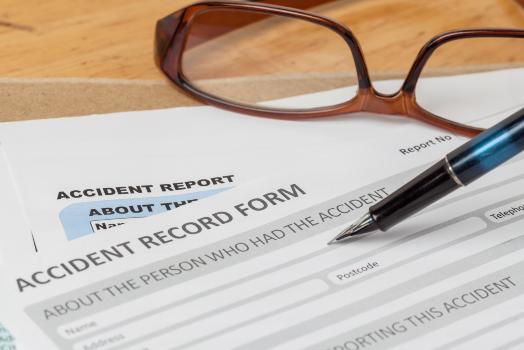
Mental Trauma After a Car Accident in Ontario, Canada
Effects of Mental Trauma After a Car Accident in Ontario, Canada
Car accidents can be highly traumatic experiences, leaving a lasting impact on the individuals involved. While physical injuries are often visible and receive immediate attention, the effects of mental trauma can be just as profound.
We will delve into the various effects of mental trauma which victims can face after a car accident in Ontario, shedding light on its importance and potential long-term consequences.
Post Traumatic Stress Disorder
One of the most frequent mental health conditions associated with car accidents is PTSD. Individuals may experience vivid flashbacks, nightmares, and intrusive thoughts related to the accident. Symptoms can also include anxiety, irritability, and hypervigilance.
If left untreated, PTSD can significantly impact a person’s daily life and overall well-being. As per Canadian Mental Health Association, up to 8% of the population experiences this disabling anxiety disorder.
Anxiety and Panic Disorders
Car accidents can trigger or exacerbate anxiety and panic disorders in affected individuals. Anxiety may manifest as constant worry, racing thoughts, and a general sense of unease. Panic attacks can also occur, characterized by sudden and intense surges of fear or terror. These conditions can interfere with people’s ability to drive, travel, or engage in activities they once enjoyed.
Depression and Mood Disorders
The sentimental aftermath of a car accident can lead to depression and other mood disorders. Feelings of grief, hopelessness, and a loss of interest in previously enjoyed activities may persist for an extended period.
Individuals may also experience changes in appetite, sleep disturbances, and difficulty concentrating. Early recognition and appropriate treatment are crucial to prevent long-term consequences.
Substance Abuse and Addiction
Car accident survivors grappling with mental trauma may turn to substances like narcotics or alcohol as a means of coping. Substance abuse can temporarily relieve distressing emotions, but it often exacerbates mental health issues and creates a dangerous cycle of dependency.
Seeking professional help and support is vital to break free from addiction and address underlying psychological trauma.
Impact on Relationships and Social Life
The effects of mental trauma after a car accident in Ontario can extend beyond the individual, affecting their relationships and social interactions. Survivors may withdraw from loved ones, experience difficulty trusting others, or develop a fear of driving or being in a vehicle. Family and friends need to offer support and understanding during this challenging time.
Sleep Disturbances
Survivors of Ontario car accidents often experience disruptions in their sleep patterns. They may struggle with insomnia, experiencing difficulty falling asleep or staying asleep throughout the night.
Nightmares related to the accident can also contribute to sleep disturbances, further exacerbating feelings of fatigue and emotional distress.
Cognitive Impairment
Mental trauma can impact cognitive functioning, leading to difficulties in memory, attention, and concentration. Accident survivors may find it challenging to focus on tasks, make decisions, or retain new information. These cognitive impairments can interfere with work or academic performance and contribute to frustration and self-doubt.
Physical Symptoms
The mental trauma experienced after a car accident in Ontario can manifest in physical symptoms. Survivors may report experiencing headaches, gastrointestinal issues, muscle tension, and fatigue. These physical symptoms are often interconnected with the psychological impact of the trauma, highlighting the complex mind-body connection.
Impact on Career and Financial Stability
Mental trauma can significantly impact a person’s career and financial stability. Individuals may find it challenging to return to work or perform their duties effectively due to the psychological distress they experience. This can lead to financial strain, as missed work or reduced productivity may result in loss of income or job opportunities.
Social Isolation and Alienation
The emotional effects of a car accident can lead to social separation and a sense of alienation. Survivors may withdraw from social activities, friends, and even family members due to the difficulties they face relating to others or fear of judgment. This isolation can further exacerbate feelings of loneliness and emotional distress.
Increased Sensitivity to Future Traumas
Experiencing a car accident and the associated mental trauma can heighten an individual’s sensitivity to future traumas or triggers. Even minor incidents or reminders related to the accident, such as screeching tires or loud honking, can evoke intense emotional and physical reactions. This heightened sensitivity can contribute to ongoing anxiety and hyperarousal.
Remember, every individual’s experience with mental trauma after a car accident is unique, and the effects can vary. Suppose you or someone you know confronts these effects. In that case, it is important to pursue professional help from healthcare providers specializing in trauma and mental health.
The effects of mental trauma after a car accident in Ontario can have far-reaching consequences on an individual’s well-being, relationships, and overall quality of life. Recognizing the signs and seeking professional help is crucial for proper diagnosis and effective treatment.
Individuals can take significant steps towards healing and reclaiming their lives by addressing mental health issues. Remember, you are not the only one, and resources are accessible to help you on your journey to recovery.



Trauma After a Car Accident in Ontario, Canada
Signs of Mental Trauma After an Accident in Ontario, Canada
Observing the signs of mental trauma after an accident in Ontario is important to ensure timely support and intervention. While physical injuries may be visible, the hidden scars of mental trauma can be equally debilitating. While physical injuries may be more visible, the psychological impact should not be overlooked.
Based on research and clinical observations, here are the signs of mental trauma that individuals in Ontario may experience after an accident.
Intense Flashbacks and Intrusive Thoughts
One common sign of mental trauma after an accident is the experience of intense flashbacks and intrusive thoughts related to the traumatic event. Survivors may find themselves reliving the accident in their minds, often triggered by similar sights, sounds, or situations. These flashbacks can be distressing and interfere with daily functioning.
Emotional Distress and Mood Swings
Accident survivors with mental trauma may exhibit emotional distress and mood swings. They may experience intense sadness, fear, anger, or irritability. These emotions may fluctuate without apparent cause and can be challenging to control. Mood swings can significantly impact relationships and overall well-being.
Avoidance Behaviors and Phobias
Individuals affected by mental trauma after an accident may develop avoidance behaviours and specific phobias. They may actively avoid situations, places, or activities that remind them of the accident or trigger distressing emotions. For example, a person involved in a car crash may develop a phobia of driving or riding in vehicles.
Hyperarousal and Hypervigilance
Hyperarousal refers to a heightened state of alertness and sensitivity to potential threats. Accident survivors may experience constant feelings of being on edge, have difficulty relaxing, and display a heightened startle response. Hypervigilance, a state of excessive alertness, can lead to continuous scanning of the environment for potential dangers.
Sleep Disturbances
Mental trauma can also affect an individual’s sleep patterns. Survivors may experience difficulties falling asleep, staying asleep, or having a restful sleep. Nightmares related to the accident may be frequent, causing further disruption to rest. The resulting fatigue can compound the emotional distress experienced during the day.
Cognitive Difficulties
Mental trauma after an accident can lead to cognitive difficulties. Accident survivors may experience problems with concentration, memory, and decision-making. They may find it difficult to focus on tasks, retain information, or make judgments, impacting their work, academic performance, and daily activities.
Social Withdrawal and Isolation
Individuals affected by mental trauma may withdraw from social activities and isolate themselves from friends and family. They may feel disconnected from others, struggle to relate to their experiences or fear judgment or criticism. Social withdrawal and isolation can exacerbate feelings of loneliness and contribute to alienation.
Physical Symptoms without Medical Explanation
Some accident survivors with mental trauma may experience physical sickness, such as headaches, dizziness, or gastrointestinal distress, without a clear medical explanation. These somatic symptoms are often interconnected with the psychological distress experienced and can be distressing and confusing for the individual.
Recognizing the signs of mental trauma after an accident is crucial for providing appropriate support and intervention to individuals in Ontario. By understanding these signs, healthcare professionals and loved ones can offer timely assistance, facilitating healing and preventing long-term consequences.
If you or someone you know is exhibiting these signs, seeking professional help from healthcare providers specializing in trauma and mental health is essential.


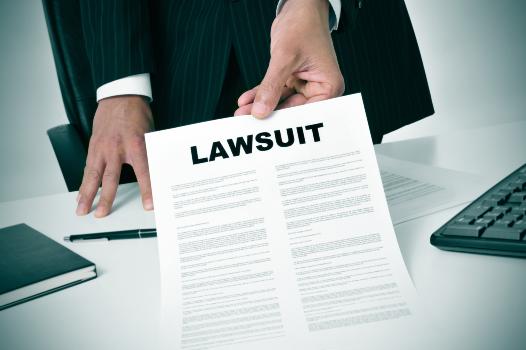
Post-Traumatic Stress After a Car Accident in Ontario, Canada
Steps to Avoid Mental Trauma During a Car Accident in Ontario, Canada
Experiencing a car accident can profoundly impact an individual’s mental well-being. The resulting trauma may lead to a range of emotional and psychological challenges.
Mental trauma after a car accident in Ontario is incredibly common, and the effects can be long-lasting. Fortunately, many effective treatment options are available to help individuals on their journey to recovery.
Here is the list:
Promote a Safe Driving Environment
Maintaining a safe driving environment is crucial to reducing the likelihood of accidents and subsequent trauma. Follow traffic rules, observe speed limits, and avoid distractions like mobile phones or eating while driving. Regular vehicle maintenance and adherence to safety guidelines contribute to overall road safety.
Practice Defensive Driving
Defensive driving techniques can help individuals anticipate and react to potential hazards on the road. Remain vigilant, anticipate the actions of other drivers, maintain a safe following distance, and use mirrors and signals effectively. Defensive driving reduces the risk of accidents and promotes a sense of control during challenging situations.
Utilize Seatbelts and Safety Features
Wearing seatbelts and ensuring that all passengers are properly restrained reduces the risk of injuries during a car accident. Please familiarize yourself with the security features of your vehicle, such as airbags and anti-lock braking systems, and ensure they are functioning correctly.
Develop Coping Strategies
Before driving, practice and develop coping strategies to manage stress and anxiety related to driving and potential accidents. Deep breathing exercises, mindfulness techniques, and listening to calming music can help promote a sense of calm and focus while driving.
Maintain Awareness of Surroundings
Remaining alert and aware of your surroundings while driving can contribute to accident prevention. Scan the road, check blind spots, and pay attention to other vehicles, pedestrians, and potential hazards. Proactively driving can help lower the likelihood of being involved in an accident.
Prepare an Emergency Kit
An emergency kit in your vehicle can provide a sense of preparedness and security. Carry items such as a first aid kit, flashlight, water, non-perishable snacks, and a blanket. Preparing for unexpected situations can help alleviate anxiety and stress during and after an accident.
Seek Professional Help for Anxiety
If you already have a history of stress or fear related to driving or accidents, consider seeking professional help. A mental health professional can provide strategies to manage stress and develop coping mechanisms specific to your needs. Addressing anxiety before an accident can reduce the risk of developing PTSD.
Establish a Support Network
Maintaining a strong support network of family, friends, or support groups can be invaluable during challenging times. Sharing concerns and fears with trusted individuals can provide emotional support and a sense of reassurance.
Engaging in open conversations about safe driving practices and potential accident scenarios can also help alleviate anxiety.
While it is unfeasible to completely eliminate the risk of car accidents, taking proactive steps to mitigate the likelihood of trauma can help individuals avoid or minimize the development of post-traumatic stress disorder (PTSD) during such events.

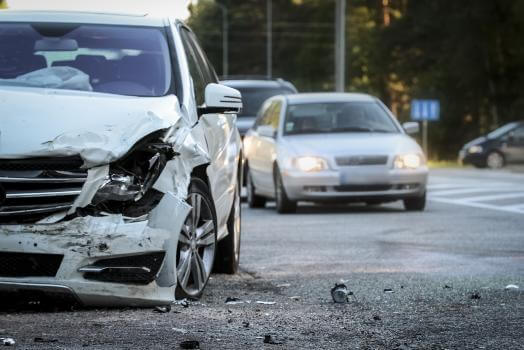

Post Traumatic Stress Disorder After a Car Accident in Ontario, Canada
Treatment of Post Traumatic Stress Disorder After a Car Accident in Ontario, Canada
If you’ve been in a car accident, you undoubtedly know how jarring and traumatic the experience can be. It may seem like everything is spinning out of control, making it hard to move forward with your life and recover from the difficult situation.
Here are the options available for victims:
Comprehensive Assessment
A thorough judgment is the first step in treating trauma after a car accident. Healthcare providers specializing in trauma and mental health will evaluate the individual’s symptoms, history, and specific needs. This assessment may include a conversation about the accident, a review of the individual’s emotional state, and an examination of any associated physical injuries.
Psychotherapy
Psychotherapy, also known as talk therapy, is a key treatment approach for trauma. Cognitive-behavioural Therapy (CBT) and Eye Movement Desensitization and Reprocessing (EMDR) are widely used and evidence-based therapies for trauma-related conditions.
CBT focuses on revealing and changing negative thoughts and behaviours, while EMDR involves bilateral stimulation to process traumatic memories.
These therapies can help individuals develop coping strategies, process traumatic memories, and reduce symptoms of anxiety, depression, and post-traumatic stress disorder (PTSD).
Medication Management
Medication may sometimes be prescribed to address specific trauma-related symptoms, such as anxiety, depression, or sleep disturbances.
Antidepressants, anti-anxiety medications, and other psychotropic drugs may be used under the leadership of a healthcare professional. Medication can help alleviate symptoms and create a stable foundation for individuals to engage in therapy effectively.
Trauma Informed Care
Trauma-informed care emphasizes creating a safe and supportive environment for individuals affected by trauma. Healthcare providers who practice trauma-informed care approach treatment with sensitivity and understanding, taking into account the impact of the trauma on the person’s overall well-being.
This approach fosters empowerment, collaboration, and respect, ensuring individuals feel validated and supported throughout their healing journey.
Group Therapy and Support Groups
Participating in group therapy or support groups can benefit individuals with trauma after a car accident. Sharing experiences, emotions, and coping strategies with others who have gone through the same experiences can provide a sense of validation, support, and connection. Group settings offer opportunities for individuals to learn from each other, gain insights, and foster a sense of community.
Mind-Body Techniques
Mind-body techniques, such as relaxation exercises, deep breathing, mindfulness meditation, and yoga, can help individuals manage trauma-related stress, anxiety, and physical tension.
These practices promote relaxation, improve self-awareness, and enhance overall well-being. Integrating mind-body techniques into daily life can support individuals in their healing process.
Gradual Exposure Therapy
Gradual exposure therapy is effective for gradually facing and processing traumatic memories or situations associated with a car accident. Under the guidance of a trained therapist, individuals are exposed to traumatic memory or condition in a safe and controlled manner. Over time, this exposure can help reduce anxiety and avoidance behaviours, empowering individuals to regain control and move forward.
Holistic Approaches
Complementary and alternative approaches, such as art therapy, equine-assisted therapy, and body-centred therapies, can complement traditional treatment methods. These approaches incorporate creative expression, animal interactions, or body-focused techniques to facilitate healing, self-expression, and emotional regulation.

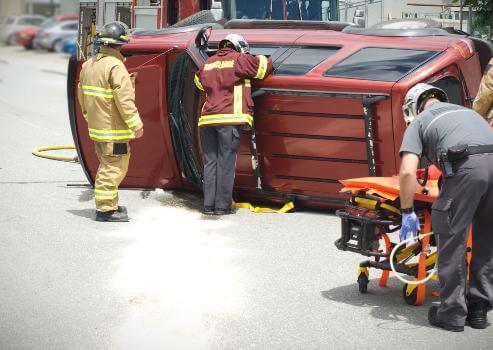

Trauma After a Car Accident Treatment in Ontario, Canada
Compensation Steps for Post-traumatic Stress After a Car Accident in Ontario, Canada
In Ontario, individuals who experience post-traumatic stress disorder (PTSD) due to a car accident may be eligible for compensation. Here is the process of seeking compensation for post-traumatic stress after a car accident in Ontario, providing insights based on research, legal expertise, and real-life experiences. Understanding the available options can help accident victims navigate the legal landscape and pursue the compensation they deserve.
Establishing the Link between PTS and the Car Accident
To seek compensation for post-traumatic stress after a car accident, it is essential to establish a clear connection between the accident and the development of PTS. This typically requires medical documentation and expert opinions linking the symptoms of PTS to the traumatic event. Seeking medical attention immediately and continuing with appropriate treatment can strengthen the compensation case.
Gathering Evidence
Building a strong compensation claim for post-traumatic stress requires gathering relevant evidence. This may include medical records, psychological assessments, expert opinions, accident reports, witness statements, and other documentation supporting the claim. Keeping a detailed history of the impact of PTS on daily life, including medical expenses, lost wages, and therapy costs, can strengthen the case.
Understanding Insurance Coverage
In Ontario, car accident compensation claims typically involve dealing with insurance companies. Understanding the insurance coverage available for accident-related PTSD is essential. Accident benefits coverage, provided through the Statutory Accident Benefits Schedule (SABS), may include compensation for medical expenses, income replacement, rehabilitation services, and attendant care. Working with a lawyer ensures you receive the full benefits you are entitled to under your insurance policy.
Assessing Damages
Determining the appropriate compensation for post-traumatic stress after a car accident requires a careful assessment of damages. These may include medical expenses, ongoing therapy costs, loss of income, pain and suffering, loss of enjoyment of life, and any other losses incurred due to the accident and resulting PTSD. Expert opinions and legal expertise can help quantify the damages and negotiate a fair settlement.
Negotiating a Settlement
Insurance companies may attempt to settle the claim quickly and for a lower amount. It is crucial to have legal representation to ensure your rights are protected and you receive fair compensation. Your lawyer can engage in negotiations, present the evidence, and advocate for maximum compensation to address the impact of post-traumatic stress on your life.
Seeking Legal Representation
Navigating the legal process for obtaining compensation can be complex, especially when dealing with post-traumatic stress. Engaging the services of an experienced personal injury lawyer is crucial to protect your rights and ensure you receive fair compensation. A lawyer with expertise in accident injuries and PTS settlement can provide guidance, handle negotiations with insurance companies, and advocate for your best interests.
Pursuing a Lawsuit
In cases where a fair settlement cannot be reached through negotiations, pursuing a lawsuit may be necessary. Your lawyer can guide you through the litigation process, including filing a statement of claim, gathering further evidence, and presenting your case in court. It is important to adhere to the prescribed timelines and legal requirements when pursuing a lawsuit for post-traumatic stress compensation.
Timelines and Limitations
Ontario has specific timelines and limitations for filing compensation claims for car accidents and post-traumatic stress. It is essential to consult with a lawyer promptly to ensure you meet the necessary deadlines and preserve your rights to seek compensation.
*The laws pertaining to automotive injuries are complex and are contsantly evolving. The information on this website was not written by legal professionals and should not be considered legal advise. Please contact a professional personal injury lawyer serving Ontario for the most up to date and accurate information.






